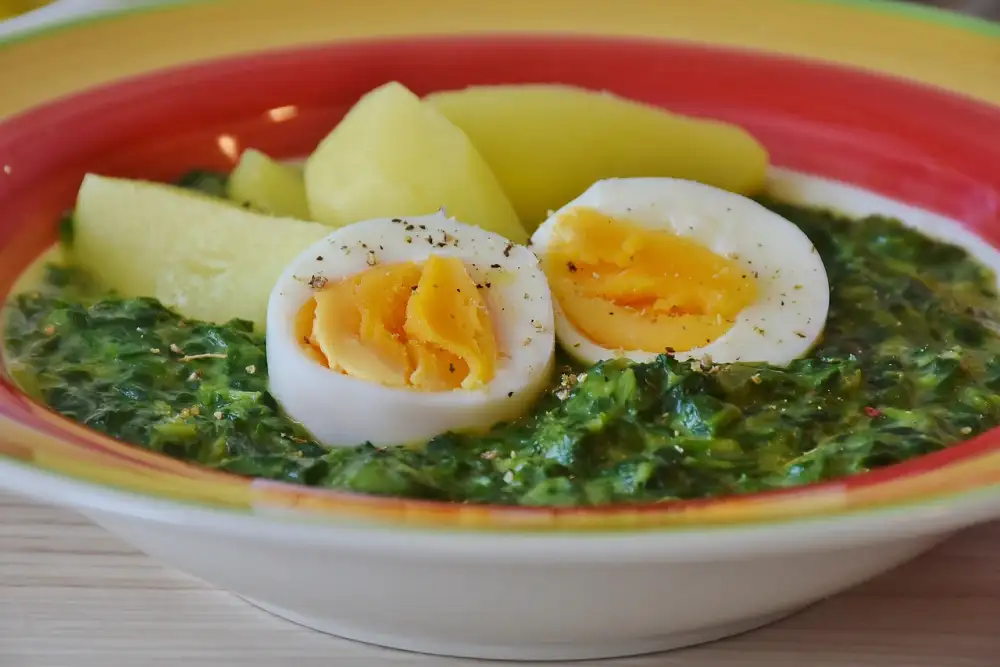Powerful Plant Proteins: Unveiling the Top High Protein Vegetarian Foods for Optimal Health

- Benefits of Including High Protein Foods in a Vegetarian Diet
- Legumes: A Powerhouse of Protein for Vegetarians
- Quinoa: The Complete Protein Grain for Vegetarian Meals
- Nuts and Seeds: Nutritional Powerhouses for Vegetarian Protein
- Tofu and Tempeh: Versatile Plant-Based Protein Sources
- Greek Yogurt: A High Protein Dairy Alternative for Vegetarians
- Incorporating High Protein Vegetarian Foods into Your Daily Meals
A common misconception is that a vegetarian diet lacks sufficient protein. However, there are numerous plant-based foods that are rich in protein and can provide all the essential amino acids required for optimal health. These high protein vegetarian foods not only offer a wide range of health benefits but also contribute to overall well-being. In this article, we will explore some of the top high protein vegetarian foods that can help you meet your daily protein requirements and enhance your culinary experience. So, let's dive into the world of powerful plant proteins and discover how they can delight your senses while nourishing your body!
Benefits of Including High Protein Foods in a Vegetarian Diet
Including high protein foods in a vegetarian diet offers numerous benefits. Firstly, it helps in building and repairing tissues, making it essential for growth and development. Secondly, protein-rich foods provide a feeling of satiety, reducing the chances of overeating and aiding in weight management. Additionally, they help regulate blood sugar levels and promote stable energy throughout the day. Lastly, incorporating high protein foods can improve muscle strength and enhance athletic performance. By including these foods in your vegetarian diet, you can enjoy optimal health and well-being.
Legumes: A Powerhouse of Protein for Vegetarians
Legumes, such as lentils, chickpeas, and black beans, are a true powerhouse of protein for vegetarians. These humble legumes pack a serious punch when it comes to protein content. For example, just one cup of cooked lentils contains about 18 grams of protein.
Not only are legumes high in protein, but they also offer a wide range of other essential nutrients. They are rich in fiber, which aids in digestion and helps maintain a healthy weight. Legumes are also packed with vitamins and minerals like iron, zinc, and folate.
Including legumes in your diet can have numerous health benefits. Research has shown that consuming legumes regularly can help lower the risk of heart disease, diabetes, and certain types of cancer. They also promote satiety and can aid in weight management.
There are countless ways to incorporate legumes into your meals. You can add them to soups, stews, salads or even make delicious veggie burgers using mashed beans as the base. The versatility of legumes makes them an excellent choice for vegetarian protein.
By incorporating legumes into your diet regularly, you can ensure that you are getting an ample amount of protein while reaping the many health benefits they offer. So go ahead and embrace these plant-based powerhouses to enhance your vegetarian lifestyle!
Quinoa: The Complete Protein Grain for Vegetarian Meals
Quinoa, often referred to as a superfood, is a complete protein grain that is perfect for vegetarian meals. This ancient grain is not only rich in protein but also packed with essential amino acids that are vital for the body's growth and repair. With its nutty flavor and versatile nature, quinoa can be used in a variety of dishes like salads, stir-fries, and even as a substitute for rice. Incorporating quinoa into your vegetarian diet ensures you're getting all the necessary nutrients while enjoying delicious and satisfying meals.
Nuts and Seeds: Nutritional Powerhouses for Vegetarian Protein
Nuts and seeds are not only delicious but also packed with essential nutrients, making them excellent sources of protein for vegetarians. Almonds, walnuts, cashews, and pistachios are all rich in protein and healthy fats. They also provide important vitamins and minerals like vitamin E, magnesium, and zinc. Similarly, seeds like chia seeds, flaxseeds, and hemp seeds offer a good amount of protein along with omega-3 fatty acids and fiber. Including a variety of nuts and seeds in your diet can help meet your protein needs while promoting overall health.
Tofu and Tempeh: Versatile Plant-Based Protein Sources
Tofu and tempeh are two versatile plant-based protein sources that are widely used in vegetarian cuisine. Tofu, also known as bean curd, is made from soybeans and is a staple in many Asian dishes. It has a mild flavor and a soft, silky texture that makes it perfect for stir-fries, soups, and even desserts.
Tempeh, on the other hand, is made from fermented soybeans and has a nutty flavor and firm texture. It can be sliced, grilled, or crumbled to add a meaty texture to salads, sandwiches, or pasta dishes. Both tofu and tempeh are rich in protein and contain all the essential amino acids that our bodies need.
Not only are tofu and tempeh excellent sources of protein for vegetarians, but they also provide other important nutrients such as iron, calcium, and vitamin B12. They are low in saturated fat and cholesterol-free, making them heart-healthy choices.
In addition to their nutritional benefits, tofu and tempeh are incredibly versatile ingredients that can be flavored and seasoned in various ways to suit different tastes. They readily absorb marinades and spices, making them ideal for creating flavorful plant-based dishes.
Whether you're looking to replace meat in your favorite recipes or simply want to incorporate more plant-based proteins into your diet, tofu and tempeh are fantastic options. Experiment with different cooking methods and flavors to discover how these plant-based proteins can enhance your meals while providing you with the necessary nutrients for optimal health.
Greek Yogurt: A High Protein Dairy Alternative for Vegetarians
Greek yogurt is a delicious and nutritious high protein dairy alternative for vegetarians. It is made by straining regular yogurt to remove the whey, resulting in a thicker and creamier texture. Greek yogurt is an excellent source of protein, with approximately 17 grams of protein per serving. This makes it a great option for vegetarians looking to add more protein to their diet. In addition to its high protein content, Greek yogurt also contains essential nutrients such as calcium, vitamin B12, and probiotics that promote gut health. It can be enjoyed on its own, or used as a versatile ingredient in smoothies, dips, dressings, and desserts. By incorporating Greek yogurt into your meals, you can easily increase your protein intake while enjoying its creamy and tangy flavor.
Incorporating High Protein Vegetarian Foods into Your Daily Meals
Incorporating high protein vegetarian foods into your daily meals is easier than you might think. Start by including legumes such as lentils, chickpeas, and black beans in your salads, soups, and stir-fries. These versatile ingredients can be used as a base for delicious vegetarian dishes.
Quinoa, a complete protein grain, can be used as a substitute for rice or pasta in your meals. It can be cooked and added to salads or used as a side dish.
Nuts and seeds are nutritional powerhouses that can be sprinkled on top of your breakfast cereal or yogurt, added to smoothies, or used in baking recipes.
Tofu and tempeh are excellent plant-based protein sources that can be marinated and grilled, stir-fried with vegetables, or added to sandwiches and wraps.
Greek yogurt is a high protein dairy alternative that can be enjoyed on its own or used as a creamy base for dressings and dips.
By incorporating these high protein vegetarian foods into your daily meals, you can ensure that you are getting all the essential nutrients your body needs while enjoying delicious and satisfying meals.
In conclusion, incorporating high protein vegetarian foods into your daily meals is a powerful way to promote optimal health. By embracing a protein-rich vegetarian lifestyle, you can ensure that your body receives the essential nutrients it needs to thrive. Legumes, quinoa, nuts and seeds, tofu and tempeh, and Greek yogurt are all excellent sources of plant-based protein that can be easily incorporated into a variety of dishes. Whether you choose to follow a fully vegetarian diet or simply incorporate more plant-based proteins into your meals, you can reap the benefits of improved digestion, increased energy levels, and enhanced overall well-being. So why not start exploring the culinary artistry of high protein vegetarian foods today? Your taste buds and your body will thank you!
Published: 13. 12. 2023
Category: Health



